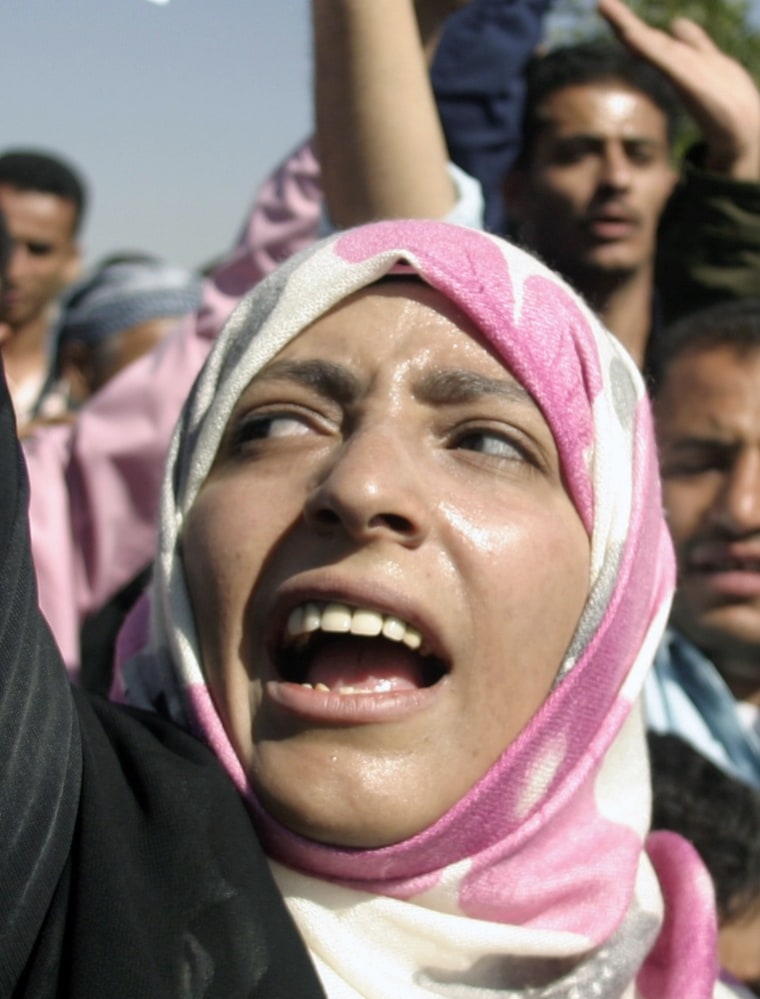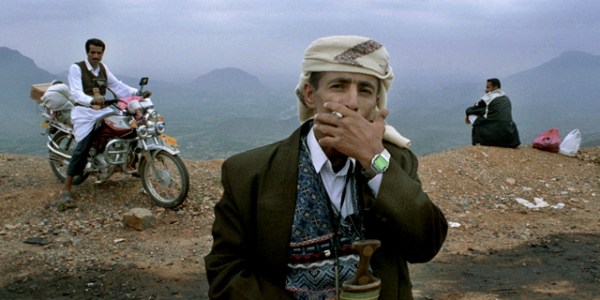Yemen has arrested a woman activist who led student protests against the government in the capital last week, a security source said on Sunday.
Inspired by the ousting of Tunisia's president a week ago, Tawakul Karman led two protests at Sanaa University, criticizing autocratic Arab leaders and calling on Yemenis to topple President Ali Abdullah Saleh by using text messages and emails.
The source said Karman, a member of the Islamist party Islah, was arrested on Sunday by order of the General Prosecution Office.
Police stopped Karman on her way home early on Sunday and charged her with organizing unlicensed demonstrations without permission, said her husband Mohamed Ismail al-Nehmi, who was with her.
"I have no accurate information about her whereabouts," Nehmi told Reuters by phone. "Maybe at the central prison, maybe somewhere else, I don't know."
After Karman's arrest, several hundred students gathered outside Sanaa University, demanding her release.
Karman, who heads the Yemeni activist group Women Journalists Without Chains, has also called on Yemenis to support the Tunisian people.
She was nominated for a U.S. State Department Woman of Courage Award in March, 2010. Although she did not win, the U.S. Embassy in the capital Sanaa has
Slideshow 20 photos
Yemen in the spotlight
The daughter of a prominent and widely respected former government minister recently told Isobel Coleman, a Senior Fellow for U.S. Foreign Policy at the Council on Foreign Relations, that she was expecting the worst from the government.
"Then they will arrest me. They will also probably kill me in prison. But I won't stop. I am determined," Karman reportedly added.
First of their kindThe recent protests in Yemen appeared to be the first of their kind. The nation's 23 million citizens have many grievances: they are the poorest people in the Arab world, the government is widely seen as corrupt and is reviled for its alliance with the United States in fighting al-Qaida, there are few political freedoms and the country is rapidly running out of water.
More than 40 percent of Yemen's 23 million people live on under $2 a day and almost a third suffer from chronic hunger.
Still, calling for President Ali Abdullah Saleh to step down had been a red line that few dissenters dared to test.
In a reflection of the tight grip Saleh's government and its forces have in the capital — outside the city, that control thins dramatically — Saturday's demonstration did not take place in the streets, but was confined to the grounds of the University of Sanaa.
Around 2,500 students, activists and opposition groups gathered there and chanted slogans against the president, comparing him to Tunisia's ousted President Zine El Abidine Ben Ali, whose people were similarly enraged by economic woes and government corruption.
"Get out get out, Ali. Join your friend Ben Ali," the crowds chanted.
One of the organizers, Fouad Dahaba, said the demonstration was only a beginning and they will not stop until their demands are met.
"We will march the streets of Sanaa, to the heart of Sanaa and to the presidential palace. The coming days will witness an escalation," said Dahaba, an Islamist lawmaker and head of the teachers' union.
Making good on that pledge will be difficult. Like other entrenched regimes in the Arab world, Yemen's government shows little tolerance for dissent and the security forces — bolstered by U.S. military aid intended for fighting the country's virulent al-Qaida offshoot — are quick to crack down.

